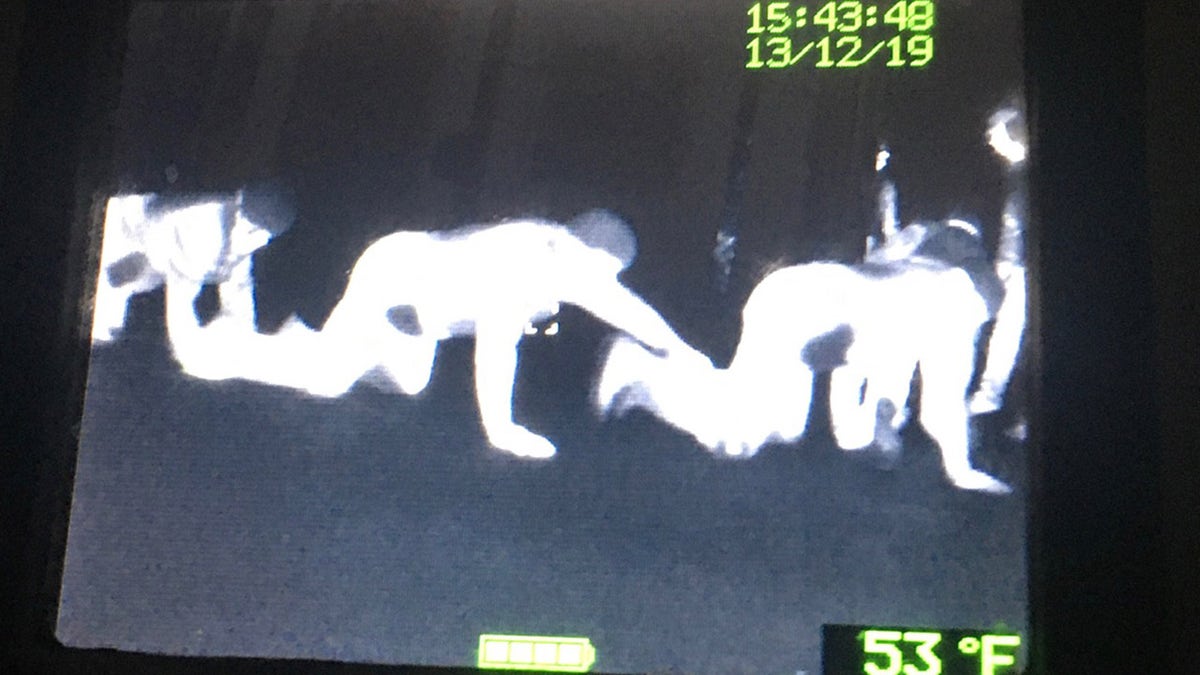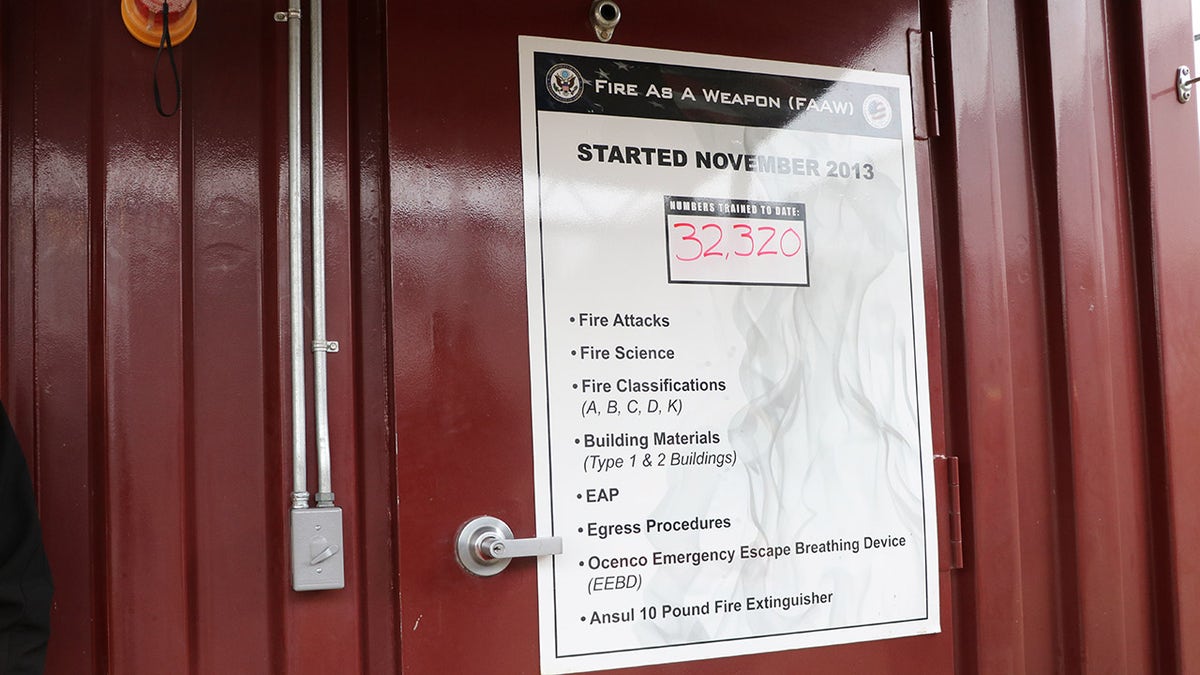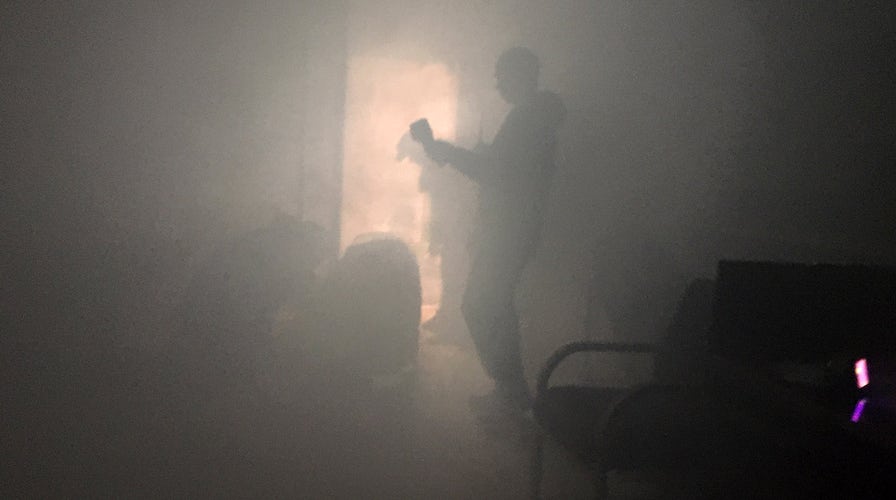Fox News Flash top headlines for Dec. 23
Fox News Flash top headlines for Dec. 22 are here. Check out what's clicking on Foxnews.com
BLACKSTONE, Va. -- It was the sound of rapid gunfire that punctured the air first. Then came the angry mob of protestors, their footsteps and chants growing louder and getting closer.
Next were the screams, the sirens and the smoke. A dire warning of an imminent attack blared over the speaker system and people came rushing out of buildings and running toward a safe house near the U.S. embassy. But inside, things were about to get much tougher.
BENGHAZI MASTERMIND SENTENCED TO 22 YEARS IN PRISON ON FEDERAL TERRORISM CHARGES
In an instant, the power was cut and the building went black. It started filling up with so much smoke that the people huddled inside were forced out. One by one, they fell to the floor, grabbed a hold of the pant leg of the person in front of them and crawled their way out. They ran to a second building but there were casualties there - bloody blown-off body parts were on the floor and people with varying degrees of injury were on stretchers. They worked together in small groups to help their wounded colleagues before running to a black helicopter waiting to take them to safety.
The entire exercise looked, sounded and felt like hell.
That was the point.

People running during a drill at the Foreign Affairs Security Training Center in Blackstone, Virginia. The newly-opened center is designed to train overseas workers how to respond to security threats and embassy attacks. (Fox News)
This particular practicum was the culmination of a 5-day course at the new Foreign Affairs Security Training Center (FASTC) in Blackstone, Va. The massive 1,350-acre compound was approved by Congress and built to provide comprehensive lifesaving security training to Department of State personnel and members of the foreign affairs community. Their spouses and children over the age of 18 are also allowed to attend.
"Training is the bedrock to protecting lives," Michael Evanoff, assistant secretary of state for diplomatic security, told Fox News. "If you are a trained foreign service officer and you go through the training we give you, you will be better prepared to react."
Constructed in three phases and fully operational in December, the FASTC hard skills training campus includes a rappel tower, a tactical maze, two smokehouses, an explosive demo range as well as a live-fire shoot house.

A thermal image of "students" at the State Department's new Foreign Affairs Security Training Center in Blackstone, Virginia. Agents are seen crawling on the floor toward an exit during a drill that teaches them how to escape a burning building. (Fox News/Barnini Chakraborty)
The facility also features two high-speed driving tracks and another that can be flooded with 96,000 gallons of water to give agents hands-on training to mastering rough road conditions. They are taught how to drive an armored SUV through a controlled skid as well as how to speed away from an ambush in reverse, ram vehicles out of the way and drive through just about every surface imaginable, including sand, mud, clay, gravel, over big rocks, over little rocks, up asphalt hills, down stairs and over logs. They are also taught how to detect surveillance, provide emergency medical care and root out improvised explosive devices.

Students are taught defensive driving maneuvers at the Foreign Affairs Security Training Center in Blackstone, Virginia. The massive 1,350-acre compound features multiple tracks that feature all types of road surfaces and terrains. Participants learn how to drive over rocks, through sand, clay, mud and dirt. They are also taught how to maneuver moguls and drive a Jeep down a mound of asphalt. (Fox News)
But perhaps most impressive is the military operations in urban terrain simulator, also known as MOUT. Based on blueprints from existing embassies, FASTC created an entire town on its campus to put agents through rigorous training on how to respond to everything from a post-election protest in a foreign country to a security threat on the chaotic streets of New York City. Paid actors play townspeople, protestors, journalists and merchants to add to the drill's "real feel."
"The world is becoming more unstable, with increasing terrorist attacks worldwide, growing instability in government and rising discontent in economically disadvantaged countries," said Wendy Bashnan, deputy assistant secretary for training, adding that workers must be ready for anything and that FASTC training gets them there.

Students are taught defensive driving maneuvers at the Foreign Affairs Security Training Center in Blackstone, Virginia. The massive 1,350-acre compound features multiple tracks that feature all types of road surfaces and terrains. Participants learn how to drive over rocks, through sand, clay, mud, and dirt. They are also taught how to maneuver moguls and drive a Jeep down a mound of asphalt. (Fox News)
One senior officer, whose name has been withheld at the request of the State Department, told Fox that along with the hard skills training, students leave the course more confident in their ability to get out of an emergency situation safely.
"I don't care if you're in Luxembourg or Lahore, there's going to be a crisis and this prepares you for that," he said.
FASTC -- which will prepare 2,000 special agents to protect U.S. diplomats and citizens around the world and is expected to train another 10,000 people annually -- was built out of necessity.

Smoke billowing out of a mock U.S. embassy at the Foreign Affairs Security Training Center in Blackstone, Virginia. The 1,350-acre compound was built to train federal agents how to respond to security threats and attacks around the world. (Fox News/Barnini Chakraborty)
There were too many attacks on too many U.S. embassies and consulates that left employees, agents and officials scrambling for their lives.
In the mid-1990s, the State Department began pushing for a more efficient, consolidated training facility for diplomatic security service agents. Prior to that, hard skills training was spread out in 11 different sites across the country, which resulted in disjointed training exercises as well as costly travel expenses and a dependency on contract facilities.
"New threats are constantly changing... We feel that we can't be stagnant. We have to be ahead of the curve."
The critical need for a new, state-of-the-art facility was underscored by almost-simultaneous attacks on Aug. 7, 1998 at the U.S. embassies in Nairobi, Kenya, as well as in Dar es Salaam, the capital of neighboring Tanzania. In all, 224 people died and another 5,000 were wounded. Among those killed in Kenya were 12 U.S. citizens.
U.S. AFRICA EMBASSY BOMBING SUSPECT KILLED IN SOMALIA
During President George W. Bush's administration between 2001-2009, there were 20 fatal attacks on U.S.embassies that resulted in 87 deaths -- 24 of them were either U.S. embassy workers or U.S. civilians.
Then came the Sept. 11, 2012 attacks in Benghazi, Libya.
In that incident, a U.S. government compound in Benghazi was ambushed in a coordinated attack by the Islamic militant group Ansar al-Sharia. In the end, four Americans had been killed: Ambassador Christopher Stevens, U.S. Foreign Service Information Management Officer Sean Smith and CIA security contractors Glen Doherty and Tyrone Woods. Benghazi was among one of the worst tragedies and one of the hardest lessons the State Department has had to learn.

Training exercise at the Foreign Affairs Security Training Center in Blackstone, Virginia. This training is designed to help embassy workers overseas develop the practical skills necessary to operate during an emergency. During the drill, agents must find their way out of a smoke-filled mock embassy. (Fox News)
In fact, FASTC's "Fire as a Weapon" course is the direct result of Benghazi and teaches diplomatic staff how to respond to attacks on their compounds involving incendiary weapons and fires that are deliberately set.
"When a facility is attacked, they set fire to the facility," Evanoff told Fox. "We need to learn how to get out of it."

Sign outside "Fire as a Weapon" course at the Foreign Affairs Security Training Center in Blackstone, Virginia. The 1,350-acre compound was designed to train agents following the 2012 Benghazi attacks against two United States government facilities in Benghazi, Libya. (Fox News)
CLICK HERE FOR THE FOX NEWS APP
Evanoff also said the State Department has spent a lot of time understanding the science of compounds that have come under attack and said security procedures and training are always evolving. That's why the new training facility in Blackstone is vital for America's foreign service workers.
"New threats are constantly changing and we are constantly looking at the threat matrix," he said. "We feel that we can't be stagnant. We have to be ahead of the curve."







































